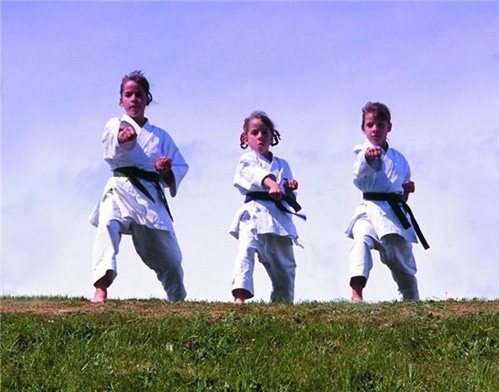Why Martial Arts Students Should Practice Mindfulness
Moments before martial arts students step onto the mat for testing day, their hearts beat faster, butterflies flutter in their stomachs and they feel the adrenaline rush through their veins. It’s only natural to get nervous on demonstration day. Students want to perform their best to secure the next belt. Imagine it’s the black belt – what they’ve been working toward through their Karate or Tae Kwon Do career. Instead of letting these anxious emotions take over, it can be better for students to find a balance between fear and a sense of calm.
Mindfulness helps martial students perform better
Life by Daily Burn, a health-related resource, indicated many athletes are incorporating mindfulness, the feeling of staying focused on the present moment and nourishing the mind-body connection, into their sports regimens. Mindfulness can help martial arts students moderate stress and perform at their optimum potential. According to the “Relationships between mindfulness, flow disposition and mental skills adoption: A cluster analytic approach,” study, individuals who possess the feeling of being present perform better when it comes to goal-setting and positive self-talk.
The Sport in Mind, a sports psychology site, revealed that mindful awareness creates a space between a person’s ideas and his or her responses. Mindfulness is associated with a sense of acceptance. Even if certain emotions arise, individuals should acknowledge them and let it go. Sport in Mind indicated these feelings are normal, but it is how people respond to these emotions that matter most.
A few mindfulness tips for martial arts students
Daily Burn suggested students pay attention to internal dialogue, which can shape individuals’ mental states. In addition, it’s best to quiet the mind and bring awareness to the body. On demonstration day before students step onto the mat, tell them to lie on the ground and breathe into any areas of tension.
Just a few minutes of mindfulness meditation can help martial arts students bring them back to their goals. This can lead to smarter decision-making. Psychology Today recommended individuals stop, breathe and then release any attachments. By doing so, students can focus on the present moment. With this exercise, individuals are firmly grounded and will have a stronger connection with themselves.
Martial arts instructors don’t have to teach students this technique on testing day. It is best to apply this principle in every class. Perhaps teachers could take two minutes before class and two minutes after class to calm individuals’ minds. This small amount of time can make all of the difference.
